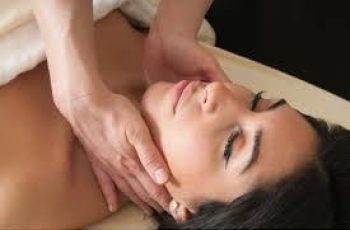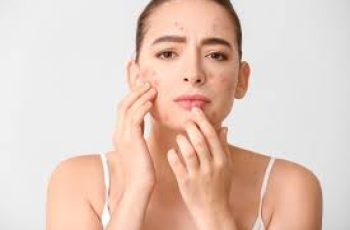
Minoxidil Alternatives: What Can I Take to Boost Hair Growth and Density?
If you suffer from hair loss, you may have heard of minoxidil or Rogaine®. It is one of the best-known topical treatments for hair loss and can be a great solution for some people.
However, it is not the only option. Minoxidil can cause a variety of side effects, and for some people, over-the-counter and gentler products or even oral options are more appropriate. Here, we will review some Rogaine/minoxidil alternatives, including vitamins and minerals, other topical serums, other medications, and lifestyle changes.
First, let’s take a look at what minoxidil actually is.
What is minoxidil?
Minoxidil is a prescription medication that is applied directly to the scalp to stimulate hair growth in men and women suffering from certain types of baldness. In the United States, it is also known as Rogaine. According to the Cleveland Clinic, experts are not entirely sure why the drug works, but we seem to know that hair only grows when you take the drug and stops growing when you stop taking it. 1
Other possible side effects of minoxidil include itching or rash, burning sensation on the scalp, facial hair growth, facial swelling, or possible increased hair loss. Less common but more serious side effects may occur if too much of the drug is absorbed through the skin, such as blurred vision, chest pain, dizziness, fainting, flushing, irregular heartbeat, or rapid weight gain. 1
Vitamins and Minerals
Given the potential for side effects, it is important to note that minoxidil is a strong prescription drug that should only be taken under medical supervision. If you are looking for a less risky Rogaine/Minoxidil alternative, we recommend starting with vitamins and minerals that have been shown to work.
According to Harvard Health, the following vitamins and minerals have been shown to improve hair2:
Vitamin A
Vitamin B2 (riboflavin)
Vitamin B3 (niacin)
Vitamin B7 (biotin)
Vitamin B9 (folate)
Vitamin B12
Vitamin C
Vitamin D
Vitamin E
Iron
Selenium
Zinc
Other studies show that ingredients like saw palmetto powder, horsetail powder, collagen, pantothenic acid, and essential amino acids like L-arginine, L-cysteine, L-methionine, and L-tyrosine can also help promote hair growth. 2, 3,4,5,6
You can get many vitamins and minerals through food. For example, vitamin C is found in berries, citrus fruits, and certain vegetables; B vitamins are found in meat, dairy products, grains, and various vegetables. 7 However, it’s difficult to get all the vitamins you need in optimal doses through diet alone—and it’s nearly impossible to get things like saw palmetto and horsetail powders.
That’s where nutritional supplements can help. Carefully formulated with precise doses of each ingredient, Foundation Skincare’s UnTangled dietary supplement has been shown to promote hair growth in a dose of two capsules per day. Unlike medications such as minoxidil, it does not cause initial hair loss and has no serious side effects.
Topical Treatments and Serums
As mentioned earlier, minoxidil is a prescription topical medication for hair loss, and when it comes to hair loss serums, the first thing that comes to mind is often Rogaine/Minoxidil. However, some people prefer over-the-counter medications.
Foundation Skincare’s Hair Serum is a topical product that nourishes hair follicles and contains ingredients such as apple stem cells, olive leaf extract, Stimucap, and more that are proven to promote hair growth. Patients who used the hair serum saw reduced hair loss, more hair growth, and improved hair density after just three months of use.
For best results, we recommend combining the UnTangled dietary supplement with a hair serum. This should address the problem directly from within the hair follicle.
Prescription and Over-the-Counter Medications
According to the Mayo Clinic, there are only a few major types of hair loss medications available in the United States. 8 These include:
Minoxidil (Rogaine): Rogaine/Minoxidil is a prescription medication. It is usually applied twice daily in foam or shampoo form while the hair is still damp. At least six months of treatment are needed to prevent further hair loss and promote hair growth. If it helps, you must continue taking the medication indefinitely to maintain the effects. 8
Finasteride (Propecia): This prescription medication for men is taken daily. After ingestion, hair loss may slow and new hair may begin to grow. As with minoxidil, you must continue taking it indefinitely to maintain the effects. Side effects may include decreased libido, decreased sexual function, and an increased risk of prostate cancer. 8
Spironolactone (Carospir/Aldactone): This medication was originally developed to treat high blood pressure and heart failure. However, studies have shown that it may also be effective in treating female pattern hair loss or androgenetic alopecia in women. 9
Oral dutasteride (Avodart): This prescription medication prevents the body from converting testosterone into dihydrotestosterone (DHT), an androgen that causes hair loss in both men and women. This medication is only used “off-label” to treat hair loss, meaning it’s not officially indicated for that purpose. 11
Lifestyle Adjustments
To truly address your hair loss in a comprehensive, long-term way, you’ll need to reconsider any lifestyle choices that are negatively impacting your hair. Some of the things we know can negatively impact your hair health (not to mention your overall health) include:
Smoking
Amount of alcohol consumed
Unhealthy diet
Too little movement
Nutritional deficiencies
Stress
Lack of sleep
Extreme weather conditions
Exposure to toxic chemicals
If you suffer from these issues on a regular basis, you need to address them first to get to the root of your hair loss problem. Additionally, your hair care routine should be gentle, especially if you suffer from hair loss.
When to see a professional
If your hair loss is sudden, patchy, or more severe than usual, you should see a doctor. Sudden hair loss can sometimes be a sign of an underlying condition that needs treatment.
Minoxidil or Rogaine® may be a good solution for some people, but it’s not the only solution. Whichever option you choose, we recommend talking to your doctor first to make sure you’re not at risk for side effects or drug interactions.


